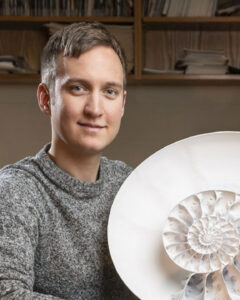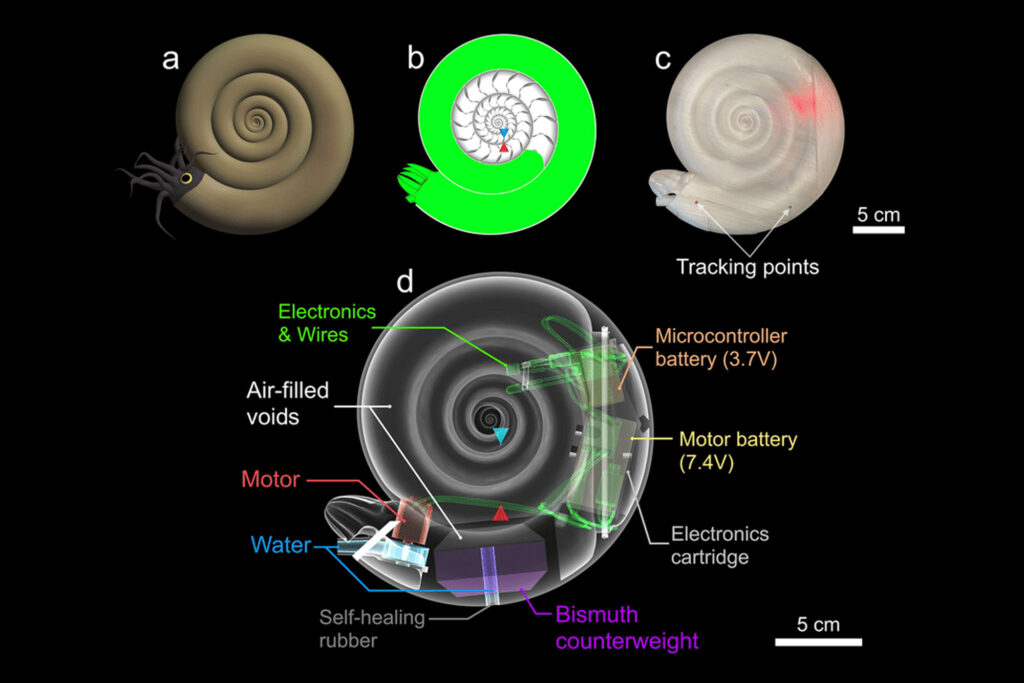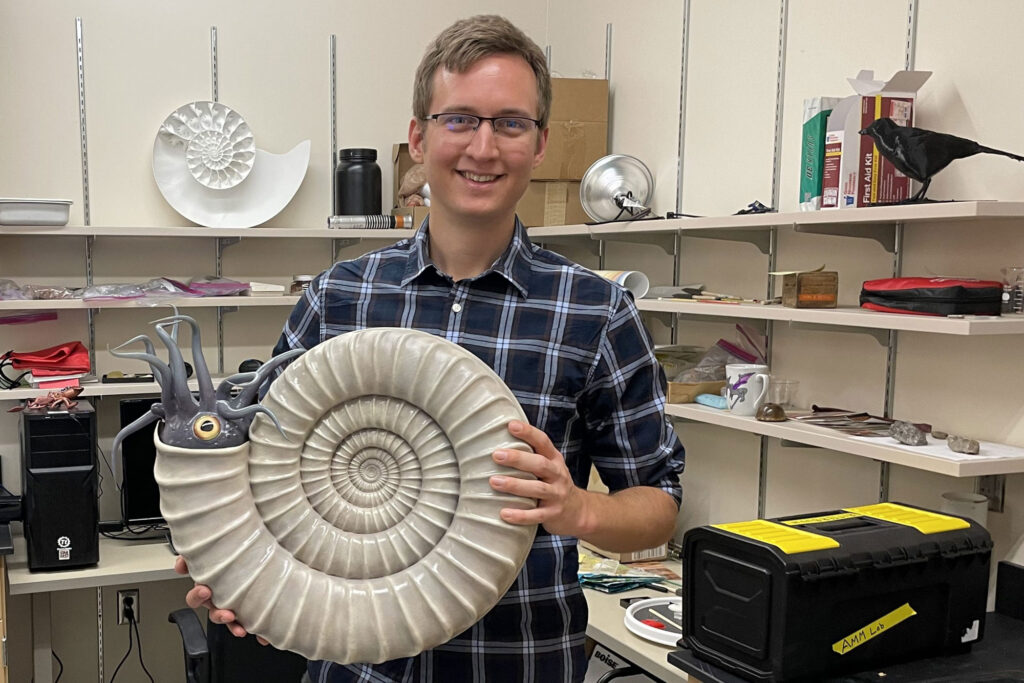Hollywood Dinosaurs
Cinematic dinosaur representation. Accurate?
Have you ever wondered if “Jurassic Park” is realistic? Jeff Goldblum’s sexual magnetism is most certainly accurate, but what of the dinosaurs?
Enter Mark Loewen, a paleontologist at the Natural History Museum of Utah and associate professor in the Department of Geology and Geophysics at the U. In June, Loewen critiqued the accuracy of Hollywood’s depictions of dinosaurs for Vanity Fair in a video that has racked up nearly 2.5 million views on YouTube. You can watch the video below.

Mark Loewen
“I view myself as an evangelist for science. Movies are a sneaky way of showing students how cool these concepts are. I mean, isn’t this one of the most awesome classes you could take? Get a science credit to watch movies and learn about the science!”
“I love these movies—some of them are horrible, but I still love them,” said Loewen. “Before being a paleontologist, I became a geologist because I wanted to time travel. By looking at rocks, you can literally see what past worlds looked like! Seeing dinosaurs reconstructed in movies is the same thing. It’s fun to see how we can use fossils to imagine what these animals could have looked like.”
Loewen is uniquely suited for the job. In the early 2000s, he and his mentor Scott Sampson created a class called World of Dinosaurs, GEO 1040, where students watched movie clips and analyzed the veracity of dino representation. He expanded this idea to create Science and Cinema, GEO 1000, a non-majors science class that analyzes science in movies. By studying the dinosaurs, natural disasters and science fiction presented on screen, students learn science fundamentals while having fun celebrating—or berating—various motion pictures.
An alum of the Science of Cinema class now works at Vanity Fair and recommended Loewen for the video series, which coincides with the release of “Jurassic World: Dominion” (2022). A professional film crew shot his interview in the paleontology collections at the museum. If you watch the video closely, you can see specimens of dinosaurs that Loewen himself has discovered and named. U students can use their UCard to visit the museum for free, and during the museum’s annual Behind-the-Scenes event you can tour the collections and see fossils and specimens not displayed on the main floor.
“I’ve named 13 dinosaurs, and many of them are in the museum,” Loewen said, “My favorite is Lythronax, an earlier cousin of the T-Rex. Lythronax means ‘King of Gore’ or ‘Gore King.’ It’s a big, bloody dinosaur on its way to becoming a T-Rex.”
Loewen cites the Disney classic “Fantasia” (1940) segment, “Extinction of the Dinosaurs,” as an early catalyst for his love of dinosaurs. He analyzes the scene in the Vanity Fair video and gives it props for being the first movie to show dinosaurs living in their ecosystem. He calls it an important movie because it “sets the stage of dinosaurs being these iconic beasts of the past.” However, he explains that the animation reflected people’s understanding of the creatures in the 40s—the animals were sluggish and dragged their tails while moving around. It wasn’t until much later that we understood that many dinosaurs were agile and fearsome hunters.
For all y’all older millennials out there, be relieved–Loewen confirms that fossils of baby long-necked dinosaurs such as Little Foot in “The Land Before Time” (1988) did have big, puppy eyes and delicate little beaks—so they really were as cute as the cartoon. However, Sara the Triceratops and Little Foot the Brontosaurus didn’t co-exist at the same time, so would never have met to become friends.
He also critiques some aspects of the original "Jurassic Park.” However, Loewen does applaud the movie for being accurate based on our understanding in the early 90s.
“’Jurassic Park’ was one of the first accurate depictions of dinosaurs. They’re not acting like lizards. They’re acting like ferocious birds of prey,” said Loewen. “But when it came out, we didn’t know that dinosaurs had feathers. At the time, lots of scientists would have told you that dinosaurs didn’t become birds. Forty years later, 100% of dinosaur paleontologists will tell you that birds are actually dinosaurs, and we have evidence of feathers for almost every type of dinosaur. In the new movies, most of the dinosaurs have feathers.”
Editor’s note on conflict of interest: The author’s favorite movie is “Jurassic Park.”


